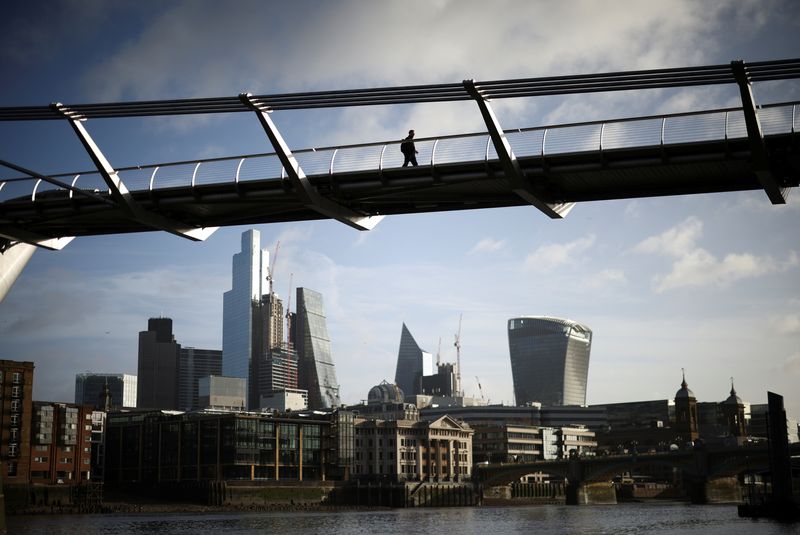By David Milliken
LONDON (Reuters) - Company insolvencies in England and Wales rose to their highest since 2012 in the first three months of this year following the end of emergency COVID support measures, while individual insolvencies were the highest since 2018.
Insolvencies fell sharply during the coronavirus pandemic, when 1.7 million businesses were propped up by 80 billion pounds ($99.9 billion) in government-backed loans and there was a ban on many court proceedings to force businesses into liquidation.
But many firms have come under more pressure since the government stopped providing new pandemic loans in May 2021 and as protection from court proceedings has been phased out over the past six months.
"It's clear we're witnessing a catch-up effect," said Jeremy Whiteson, an insolvency partner at law firm Fladgate.
"Some companies have been beyond rescue for some time, but were able to delay formal insolvency thanks to the government support measures and the restrictions placed on creditors."
A total of 4,896 companies became insolvent in the first quarter of this year, up from 4,615 in the last quarter of 2021 and double the number a year earlier, government figures showed on Thursday.
'Voluntary' liquidations - where creditors and companies reach a deal outside court - hit the highest since records began in 1960 but compulsory liquidations stayed below pre-pandemic levels.
Company insolvencies were likely to rise further in coming months due to surging operating costs and the recent removal of the last pandemic-related court protections, Whiteson said.
Personal insolvencies are also on the increase. The number of individual insolvencies in England and Wales was 14% higher than a year earlier at 32,305, equivalent to 0.24% of adults and the highest number since the final quarter of 2018.
Part of the increase reflected a June 2021 change to one form of bankruptcy protection, debt relief orders, which can now be used to write off personal debts of up to 30,000 pounds, up from 20,000 pounds before, statisticians said.
Households will come under increasing strain this year as inflation pushes up the cost of energy and food bills.

Britain's Office for National Statistics said on Tuesday that 23% of households had reported they were finding it harder to pay their bills than a year ago, up from 17% in November.
($1 = 0.8008 pounds)